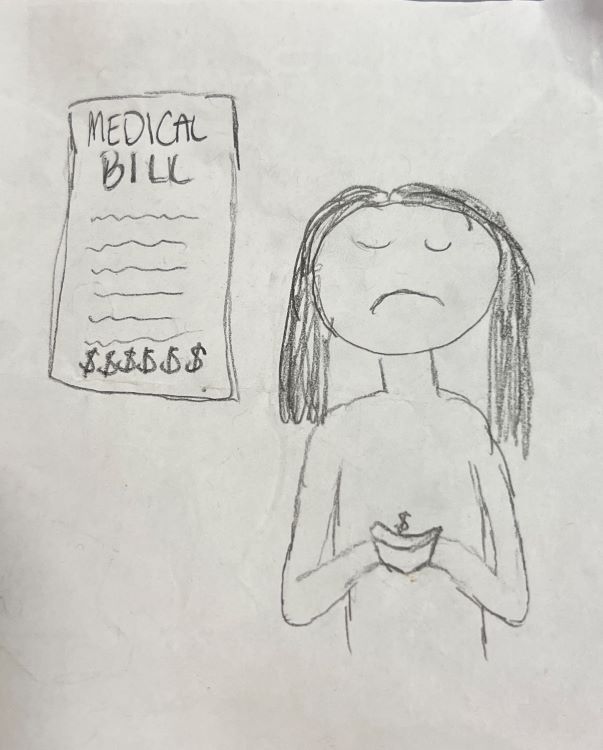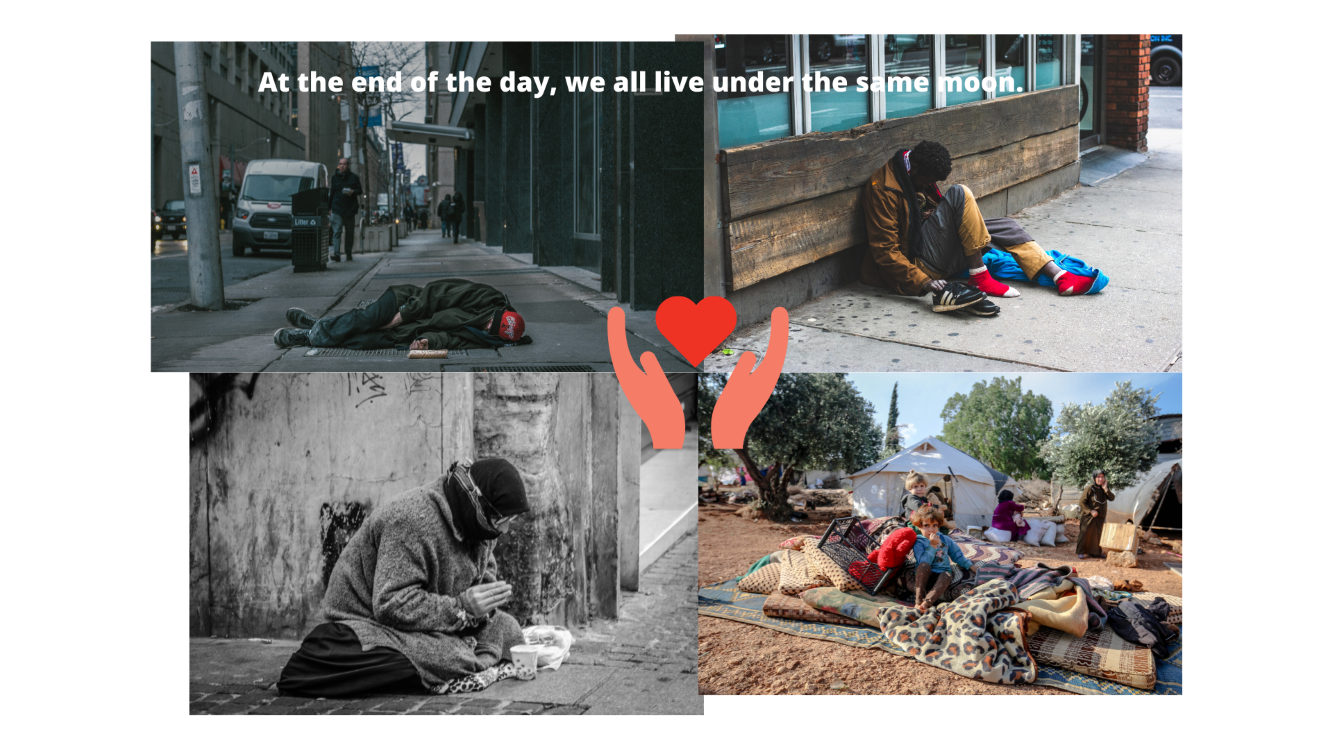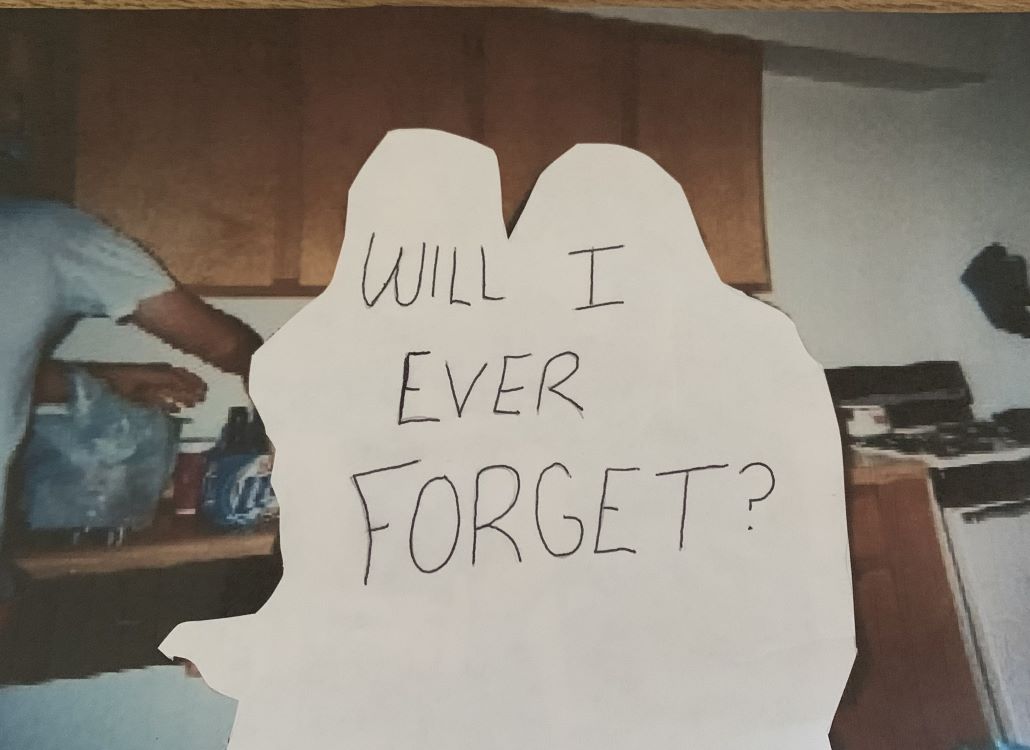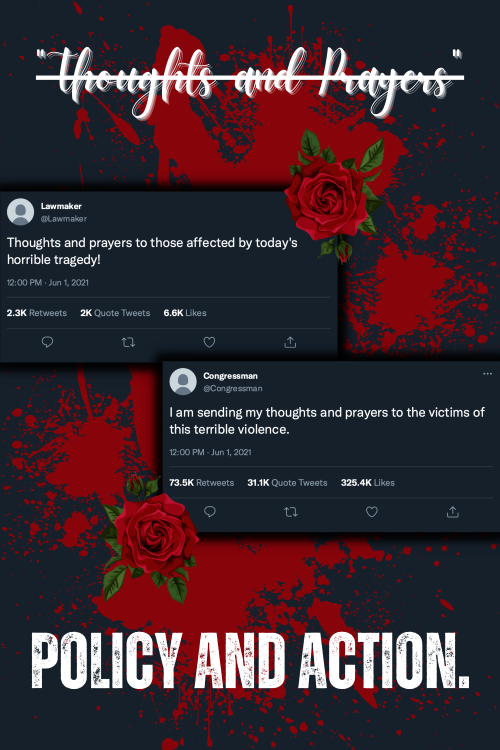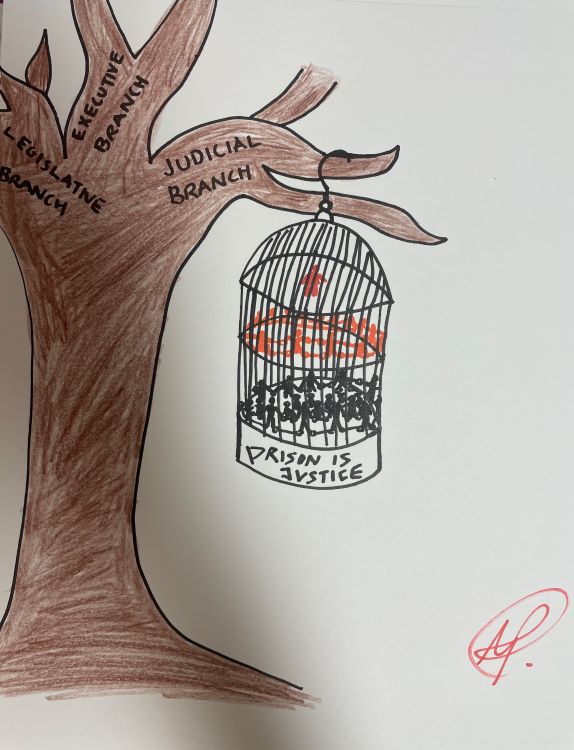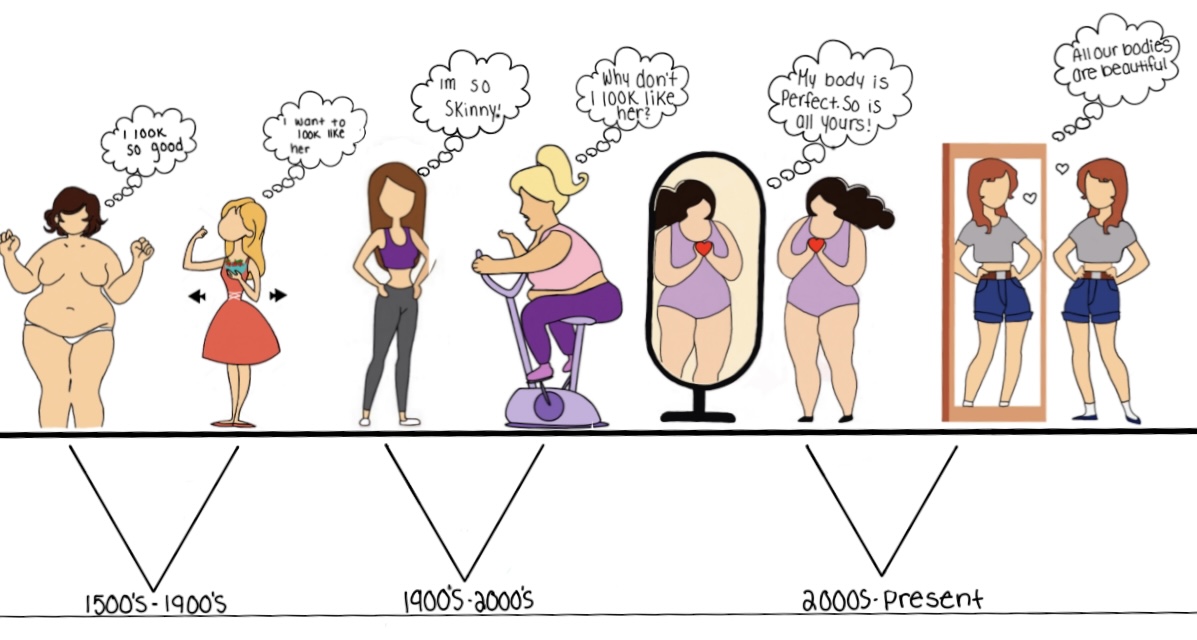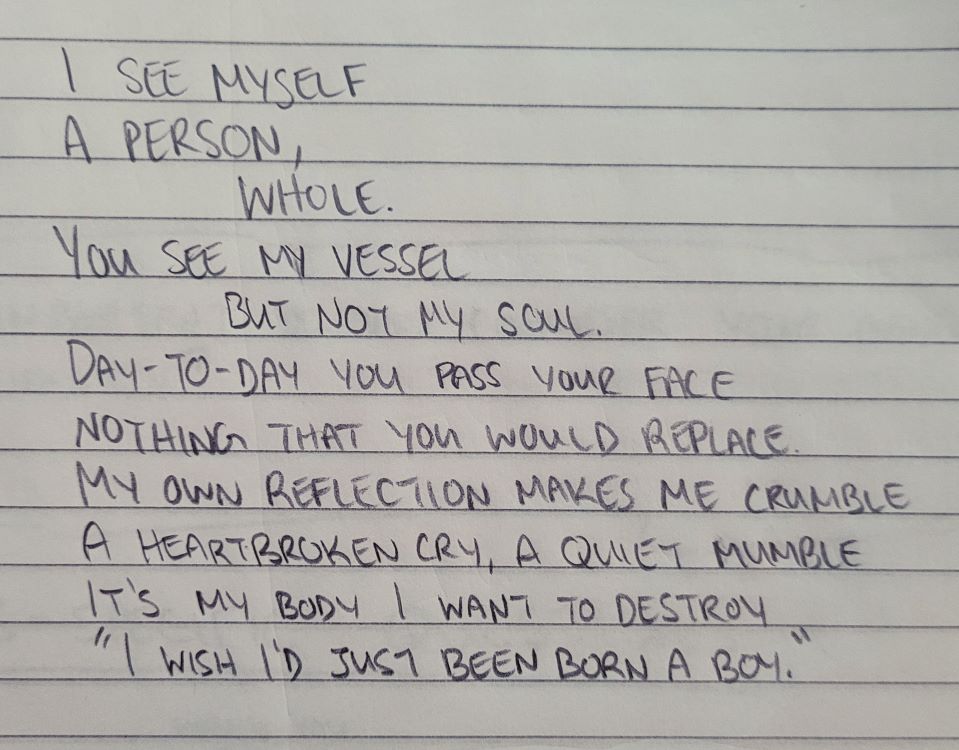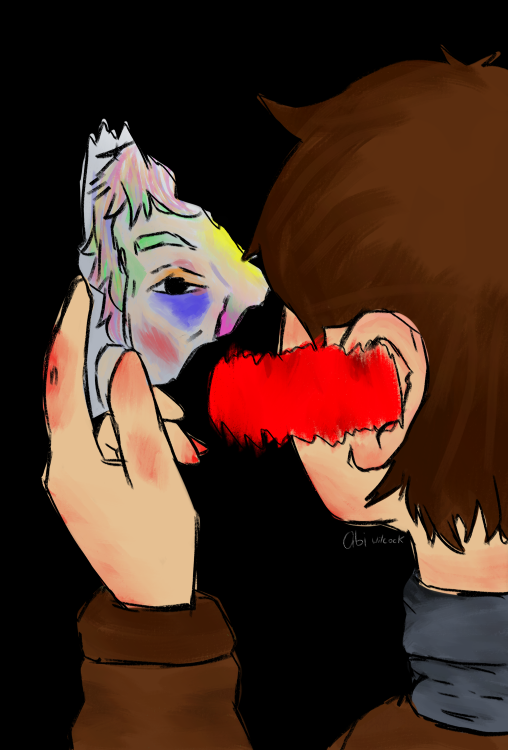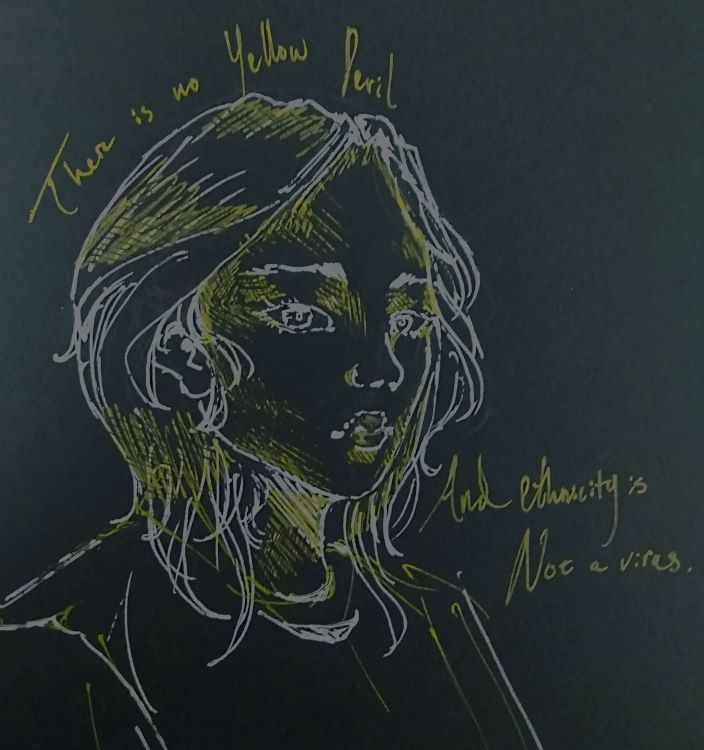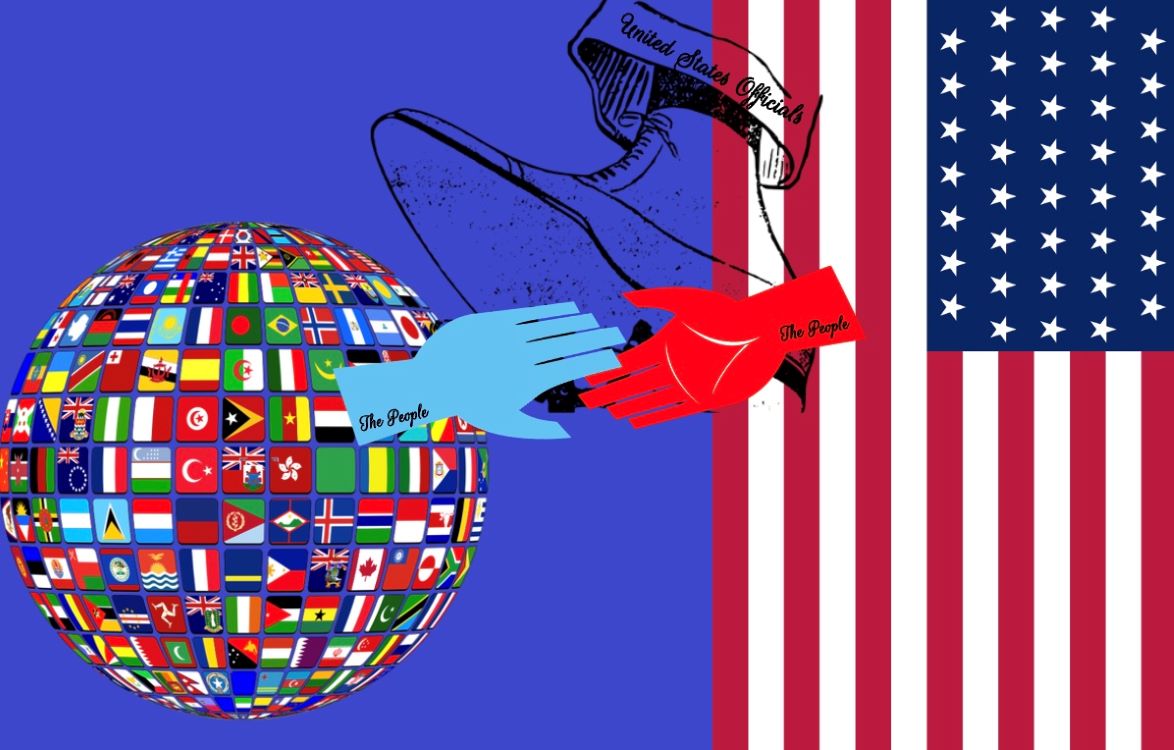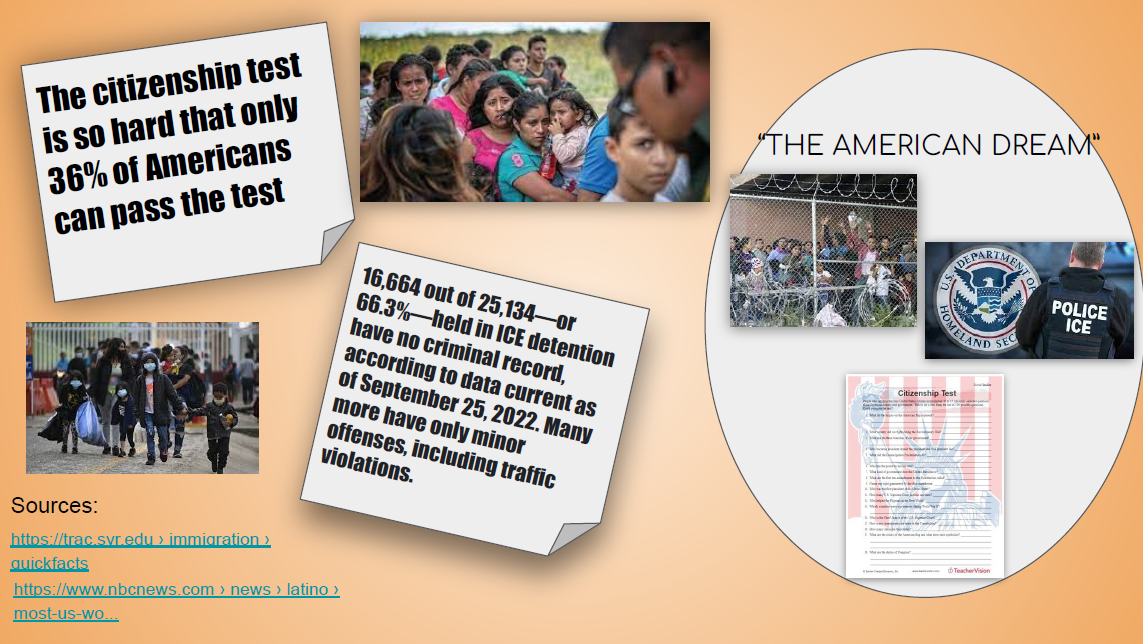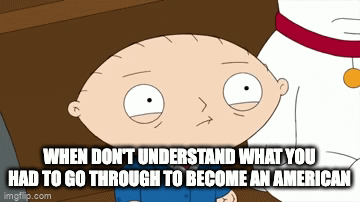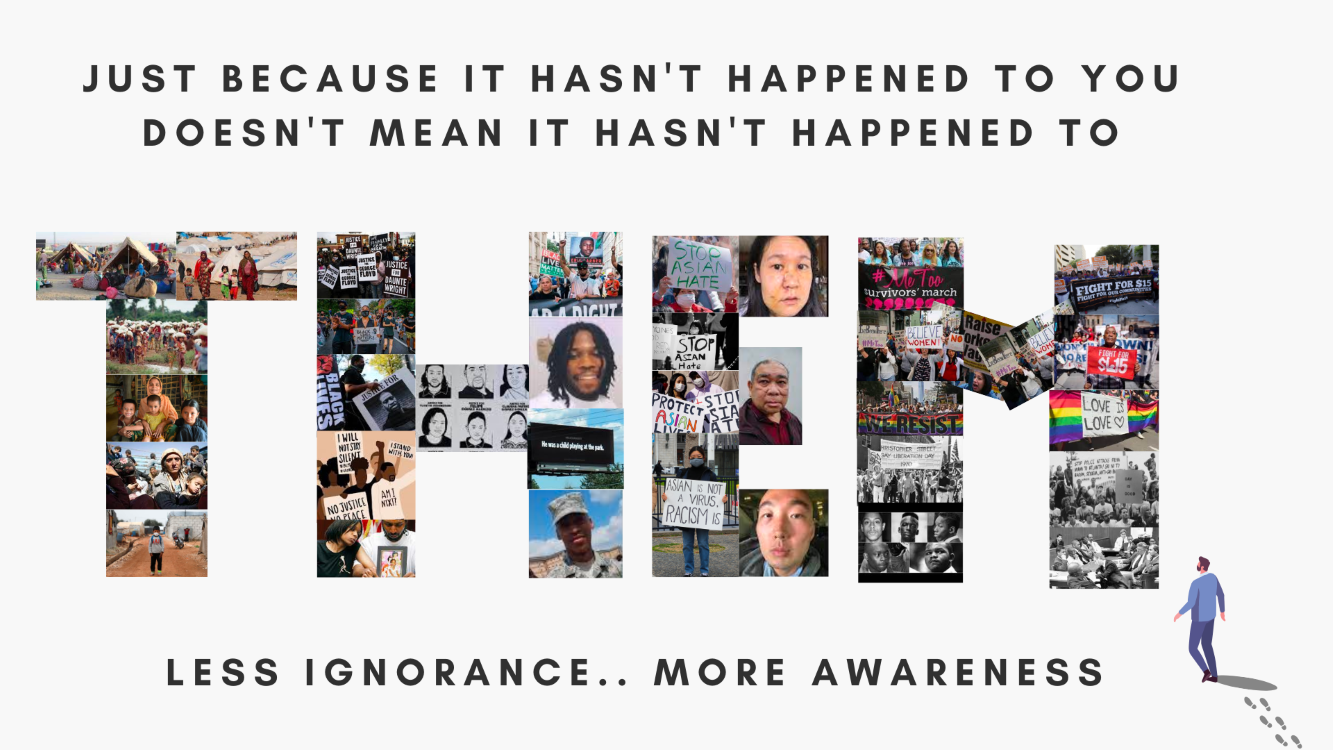Many students reflect on social issues that might not be addressed in While the Earth Sleeps We Travel but are nevertheless significant for them. In the drawing "Unaffordable," Shannon Dolt comments on rising healthcare costs and poverty in the United States by illustrating someone who does not have the means to pay for an expensive medical bill. Echoing the issue of poverty, another student's creation depicts homelessness and expresses the support and respect everyone should receive, especially those in need. The student states: "The idea that at the end of the day, we all live under the same moon…I think this idea shows equality and fairness. No one person is better than one another, and at the end of the day, we should all treat each other with respect."
Another issue many reflect on is the violence we face in everyday life. Brianna Finnegan creates this striking digital reflection to visually represent the long-term results of bullying. "As a child, when you're bullied, it sticks with you for a long time since you're growing and very impressionable." Finnegan explains, "This picture shows that even as an adult, you can still remember the words said to you when you were eight."
Alasqa Farley's digital reflection represents one of many politicians' favorite phrases, "thoughts and prayers." Farley articulates that "after a violent tragedy caused by gun violence, those in power often send 'thoughts and prayers' to the victims rather than using their power to prevent more tragedies and victims. The roses are there to represent the appearance that lawmakers are trying to achieve by sending their 'thoughts and prayers.' However, roses have thorns. When politicians simply send 'thoughts and prayers' rather than taking action, they are only making the cut deeper."
Angel Finney illustrates that "American citizens are confined, isolated, and treated like animals in their own home country." Finney notes that people's lives are heavily impacted and confined by all the injustice in the "branches" that are supposed to support this society.
We are all facing injustice in our own lives, from how we look and act to who we are. Mackenzie Kelly expresses issues related to body image and encourages everyone to self-love. The creation represents the idea that body expectations and acceptance have changed over the years: "For many many years, the body expectation was to be obese. It represented wealth. Then as time went on, the body expectation transformed [into] wanting to be skinny. It became the definition of the new beauty. Today in our present time, everyone's body is loved. There [should be] no set expectation on the perfect body. Everybody is beautiful and should be loved and owned."
Injustice against the LGBTQIA+ community has been escalating in recent years. Sheik's poem "Just a Girl" cries for the transgender community:
My own reflection makes me crumble
A heartbroken cry, a quiet mumble
It's my body I want to destroy
"I wish I'd just been born a boy."
Abi Wilcock comments on the struggles LGBTQIA+ people undergo trying to figure out who they are. Wilcock notes, "This drawing itself is meant to feel rushed and messy. Because many queer people feel rushed into deciding who they are and the mess that can come with labels. [Many] in the community feel like outcasts for not knowing who they are yet or not choosing to use a label."
Often, injustice comes from one's race. "There was, and still is, a surge in Asian and Asian-American hate due to COVID." Glorianna Yin wants the voice of Asian and Asian-Ameircans to be heard: "The tensions and hate that came from the pressure of a global pandemic only serve to reinforce that humanity is divided by race and ethnicity. For a more united and peaceful world, it is time for us to set aside those differences and realize there is humanity in all of us."
Injustice can also come from one's status as a foreigner or an immigrant. Riley Ruane describes the issue as "most of the people in America want to engage in these ties with the rest of the world and help the people of other countries come here and seek peace, but modernly United States officials and the people who can allow that to happen are stomping or crushing this idea and leaving those needing help, to fend for themselves."
Katie Sinclair's slide explains some of the obstacles that immigrants have to go through to gain citizenship and achieve that "American Dream." In a meme, Isabella Donovan resonates with the hardships any immigrant faces. Donovan unfolds the observation that "even [to] this day, people don't consider refugees to be American even though they [risked] everything just to get here."
Kabmata's creation encourages viewers to be aware that many people experience injustice related to race, gender, sexual orientation, financial condition, and more.

